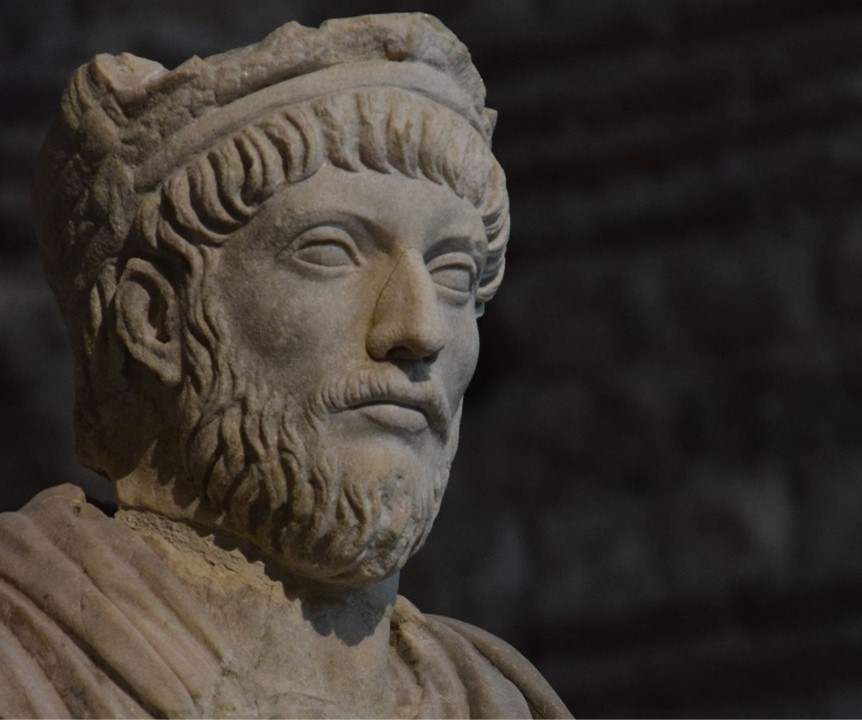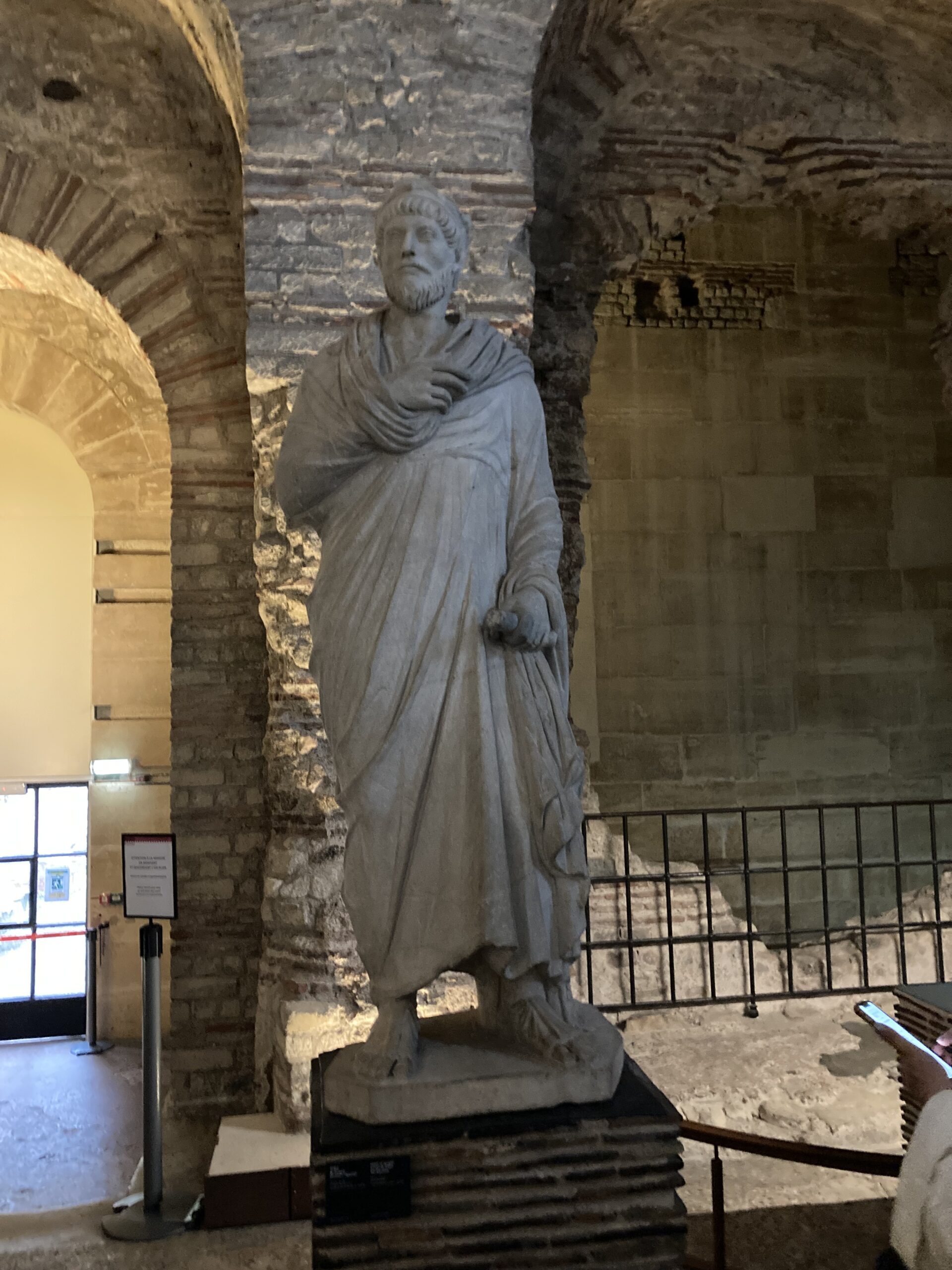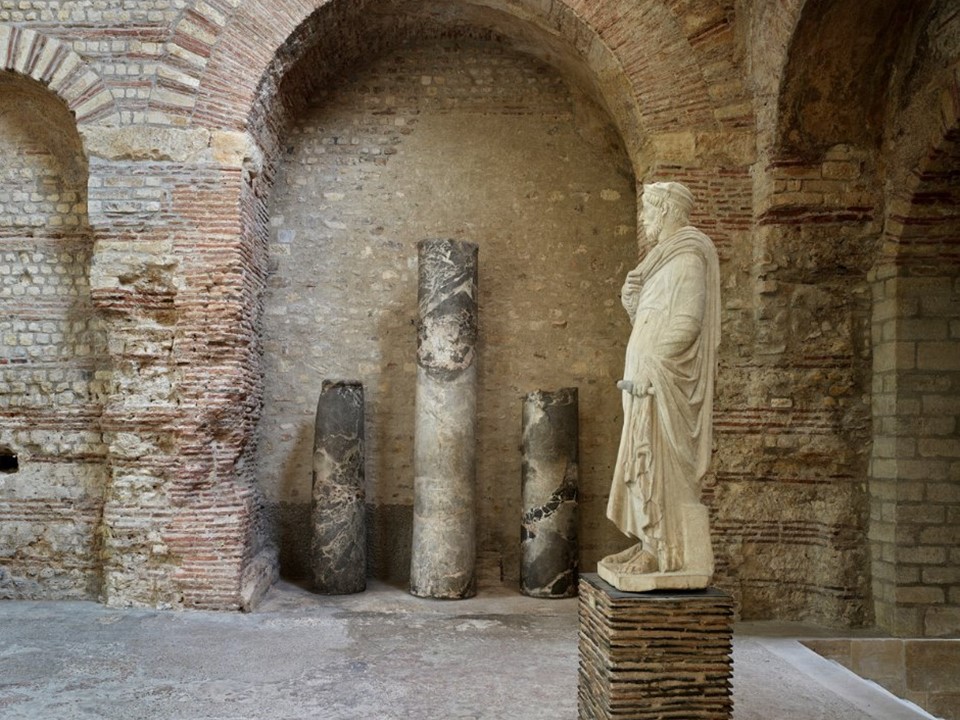
https://www.facebook.com/photo/?fbid=3606532259414293&set=a.547320410758138
…However the song that I now sing has been composed in prose, and it contains much violent abuse, directed not, by Zeus, against others – how could it be, since the law forbids? – but against the poet and author himself. For there is no law to prevent one’s writing either praise or criticism of oneself. Now as for praising myself, though I should be delighted to do so, I have no reason for that; but for criticising myself I have countless reasons, and first I will begin with my face. For though nature did not make this any too handsome or well-favoured or give it the bloom of youth, I myself out of sheer perversity and ill-temper have added to it this long beard of mine, to punish it, as it would seem, for this very crime of not being handsome by nature… The Emperor Julian as described in his book Misopogon (or “Beard-Hater”) https://sourcebooks.fordham.edu/ancient/julian-mispogon.asp
Emperor Julian, often referred to as Julian the Apostate, is a compelling figure in Late Roman/Early Christian history, renowned for his military acumen and his controversial efforts to revive paganism. His life and reign were marked by dramatic events and significant attempts to reform the Late Roman Empire.
Born in 331 or 332 AD in Constantinople, Julian’s full name was Flavius Claudius Julianus. He was the nephew of Emperor Constantine the Great. After Constantine’s death, a violent power struggle ensued, resulting in the deaths of many of Julian’s relatives. Julian and his half-brother Gallus were among the few survivors. Julian received an extensive education, studying in places like Nicomedia and Athens, where he was deeply influenced by philosophy, rhetoric, and classical studies.
Julian’s rise to power began in 355 AD when his cousin, Emperor Constantius II, appointed him as Caesar, assigning him the defence of the Western Roman Empire, particularly the region of Gaul (modern-day France). Julian quickly demonstrated his military prowess, winning several critical battles against Germanic tribes, including the notable Battle of Strasbourg in 357 AD.

In 361 AD, following the death of Constantius II, Julian became the sole emperor. Constantius had named Julian as his successor on his deathbed. As emperor, Julian focused on reforming the administration and curbing corruption. Known for his personal austerity and philosophical inclinations, Julian’s governance aimed at restoring the moral and ethical standards of the Roman administration.
Julian’s reign is particularly remembered for his efforts to revive paganism, earning him the moniker ‘the Apostate’ for his rejection of Christianity, which had been embraced by his predecessor Constantine. Julian sought to reinvigorate traditional Roman religious practices and restore pagan temples. Although he favoured paganism, he did not persecute Christians outright but rather aimed to diminish their influence by withdrawing state support and promoting religious pluralism. He even attempted to establish a pagan church structure to rival the Christian hierarchy.
In 363 AD, Julian embarked on an ambitious military campaign against the Persian Empire. Initially successful, the campaign eventually encountered severe logistical challenges. During a retreat, Julian was mortally wounded and died on June 26, 363 AD. The circumstances of his death remain unclear, with some accounts suggesting he was killed by a Persian soldier, while others imply he was assassinated by a Christian within his ranks.
Julian’s reign, though brief, left a lasting impact. His efforts to restore paganism were largely reversed by his successors, but his writings and philosophical contributions continued to influence subsequent generations. An accomplished writer, Julian authored works such as “Misopogon” (Beard-Hater), a satirical critique of the citizens of Antioch, along with numerous letters and treatises on philosophy and religion. Julian the Apostate remains a complex and intriguing figure, known both for his military successes and his controversial religious policies. His attempt to halt the Christianization of the Roman Empire ultimately failed, yet his reign illustrates the dynamic and often contentious nature of the late Roman Empire.

https://www.facebook.com/photo/?fbid=2150017008399166&set=comment-f%C3%AAter-son-%C3%A9lection-en-remerciant-ses-plus-fid%C3%A8les-partisans-la-tradition
On the 10th of May 2023, I came face to face with Emperor Julian in Paris, at the Musée de Cluny, the Musée National du Moyen Âge. Or so I thought… as Museum scholars now believe that the impressive statue of the bearded man in their Collection is probably the portrait of a 2nd century AD priest, not the Emperor. Whoever the man is… he is striking and imposing, gracious and dignified… a noble man of distinction!
For a Student Activity on The Emperor Julian, please… Check HERE!